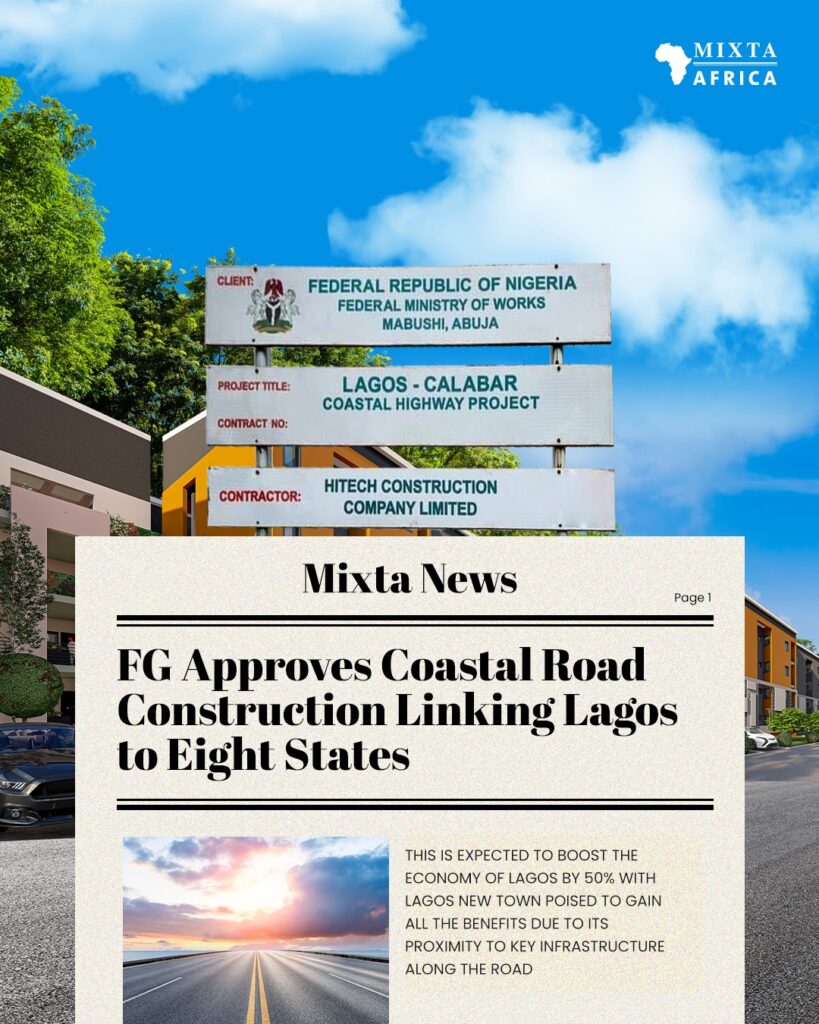The Lagos-Calabar coastal road project is a significant infrastructure initiative aimed at enhancing transportation networks along the southern coastline running from Lagos through the eight coastal states up to Cross River. The project involves the construction of a modern road spanning approximately 700 kilometers, connecting Lagos to Calabar while linking major urban centers, industrial hubs, and seaports along the southern coast. The road starts from Lagos, the Lekki Deep Seaport, and runs through Ogun, Ondo, Delta, Bayelsa, Port Harcourt, and Akwa Ibom.
With the approval of an N1.06 trillion contract for the construction of the first phase of the coastal road, covering 47.47 kilometers dual carriageway of five lanes on each side and a train track in the middle, the project represents a strategic investment in the country’s infrastructure in line with the MDGs.
The project will stimulate economic growth, facilitate trade, and enhance regional integration by improving connectivity and reducing travel times between key economic zones. Additionally, the project is expected to have far-reaching socio-economic benefits, including the creation of employment opportunities, the promotion of tourism, and the enhancement of accessibility to essential services for communities along the route.
The Lagos-Calabar coastal road project holds the potential for unlocking the hidden productivity of the country’s coastal regions and hinterlands. Improved transportation infrastructure reduces travel times, lowers transportation costs, and enhances market access for businesses of all sizes. This, in turn, spurs investment, stimulates trade, and catalyzes economic diversification. Moreover, by integrating remote communities into national and regional supply chains, the Lagos-Calabar coastal road bridges the rural-urban divide, fostering inclusive development and reducing income disparities.
About Lagos New Town
One of such communities that stands to benefit immensely from the opportunities of enhanced connectivity is the Lagos New Town (LNT) project, a land banking initiative of Mixta Africa, sitting on an impressive 1,500 hectares (roughly twice the size of the current Victoria Island), in the Ibeju-Lekki axis of Lagos and has had a profound impact on infrastructure development in the area.
Recognizing the potential of the area for real estate development, Mixta Africa, through strategic land acquisitions and planning, facilitated the construction of essential infrastructure such as roads, drainage systems, and utilities which enhanced the accessibility and connectivity of the community and also laid the groundwork for further urbanization and economic growth.
The construction of the Lagos-Calabar coastal road would facilitate the integration of the LNT into regional and national transportation networks, enhancing its accessibility and connectivity. This integration has the potential to catalyze further infrastructure development, economic growth, and social progress.
For investors seeking lucrative returns on real estate investments, the LNT presents an irresistible proposition. With its strategic location and newfound accessibility, the region becomes a magnet for growth with a ripple effect that translates into increased economic activity. Its proximity to the new infrastructure developments along the Ibeju-Lekki axis creates a conducive environment for unparalleled opportunities that will capitalize on the prospective demand for premium residential and commercial spaces.
Furthermore, with the construction of the Lagos-Calabar coastal road, the Lagos New Town is positioned as a dynamic hub within Nigeria’s coastal landscape, where investors stand to reap the rewards of being at the forefront of a transformative change. The potential for attractive ROI is not just a possibility – it’s a certainty.


